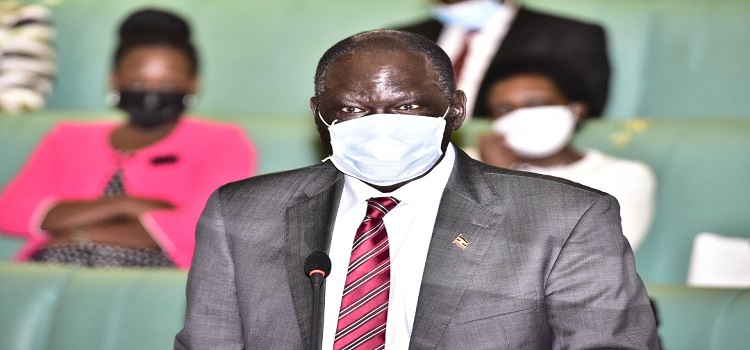
The Minister for Relief, Disaster Preparedness and Refugees, Eng Hillary Onek says the floods experienced across the country have led to losses of property and life which he said in the long run affects the economy.
Presenting a statement on the status of disasters around the country, Onek said that in the past two years, over 20 districts have experienced floods and other natural disasters whose effect, he said spreads from loss of property to causing the country financial loss.
“In 2020 alone, disasters caused financial loss of shs563 billion. This was mainly in the transport & infrastructure, commercial and residential houses, education, environment and natural resources and water and sanitation,” he said.
The Minister added that flood affected populations have lost food crops, livelihood sources and house.
“Social service delivery was greatly disrupted by enormous damage to roads and bridges, health facilities, water points and educations institutions,” he added.
Onek told Parliament of a recent food security and nutrition assessment conducted in Karamoja, indicating an acute food insecurity that has affected 30 per cent of the population there.
Speaker Jacob Oulanyah who chaired plenary sitting on Thursday, 09 September 2021, tasked Onek to see to it that the matter of floods is prioritized in cabinet meetings.
“If you see this as a serious matter affecting our people, rank it high and fund it. The priorities of Parliament are set by the cabinet headed by the president; that is where the budget is decided,” said Oulanyah.
Legislators proposed revival of regional silos to enable the country stock adequate food during the bumper harvests as a way of mitigating the impact of drought and famine.
“Last time, the Office of the Prime Minister imported food from Malawi; food that we grow here and export to other countries. When there is a bumper harvest, let us buy some of this food such that it helps us in times of scarcity” said Hon Robert Migadde (NRM, Buvuma Island).
Kasanda North MP, Hon Patrick Oshabe urged government to look beyond food and basic household items items in response to disasters, noting that the impact on livelihood requires a more comprehensive plan.
“Many times, when there is a disaster, our government only responds with food, beds and mosquito nets as if it’s the only thing we can do yet people’s livelihoods are destroyed. We want to see funds to restore livelihood,” said Oshabe.
The Prime Minister, Robinah Nabbanja assured Parliament that the issue of disasters is top on the cabinet agenda and asked legislators to be cognizant of the effect Covid-19 and other disasters have had on the economy.
“Cabinet discussed this extensively but so many calamities befall this country. We had Covid, locusts and we now have these other calamities yet you know the economy is struggling” said Nabbanja.
